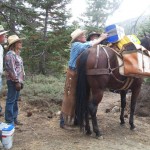California has already experienced an unusually early start to fire season amid an ongoing drought and historically low rainfall and reservoir levels. While wildfires are a natural part of California’s landscape, the fire season in California and across the West is starting earlier and ending later each year. Warmer spring and summer temperatures, reduced snowpack, and earlier spring snowmelt create longer and more intense dry seasons that increase moisture stress on vegetation and make forests more susceptible to severe wildfire.
The increasing fire danger posed by dead grass and hotter, drier conditions in the region is prompting Cal Fire to suspend all burn permits for outdoor residential burning within the State Responsibility Area of Riverside County. This suspension took effect at 8 a.m. Monday, May 23, banning all residential outdoor burning of landscape debris such as branches and leaves.
“California wildfires continue to threaten our communities,” said Chief Joe Tyler, Cal Fire director. “With the conditions set for an early start of the 2022 fire season, it is imperative that we collectively take preventative steps now to prepare, and we ask all Californians to do their part in wildfire preparedness.”
“As we enter the summer months, we are experiencing critical fire behavior due to warmer temperatures and tinder-dry vegetation. We urge residents to comply with this suspension until I determine that it is safe to resume open burning,” said Riverside County Fire Chief Bill Weiser.
While outdoor burning of landscape debris by homeowners is no longer allowed, Cal Fire is asking residents to take extra time to prepare their homes for wildfire by creating defensible space and hardening their homes ahead of wildfires.
Here are some tips to help prepare homes and property:
• Clear all dead and or dying vegetation 100 feet from around all structures.
• Landscape with fire-resistant plants and non-flammable ground cover.
• Find alternative ways to dispose of landscape debris like chipping or hauling it to a biomass energy or green-waste facility.
The department may issue restricted temporary burning permits if there is an essential reason due to public health and safety. Agriculture, land management, fire training and other industrial-type burning may proceed if a Cal Fire official inspects the burn site and issues a special permit.
Suspending burn permits for residential landscape debris does not apply to campfires within organized campgrounds or on private property. Campfires may be permitted if the campfire is maintained in such a manner as to prevent its spread to the wildland.
A valid campfire permit is required and can be obtained online at www.ReadyForWildfire.org. For more information on how to create defensible space, home hardening and evacuation planning, and how to be prepared for wildfires, as well as tips to prevent wildfires, visit the same website.










